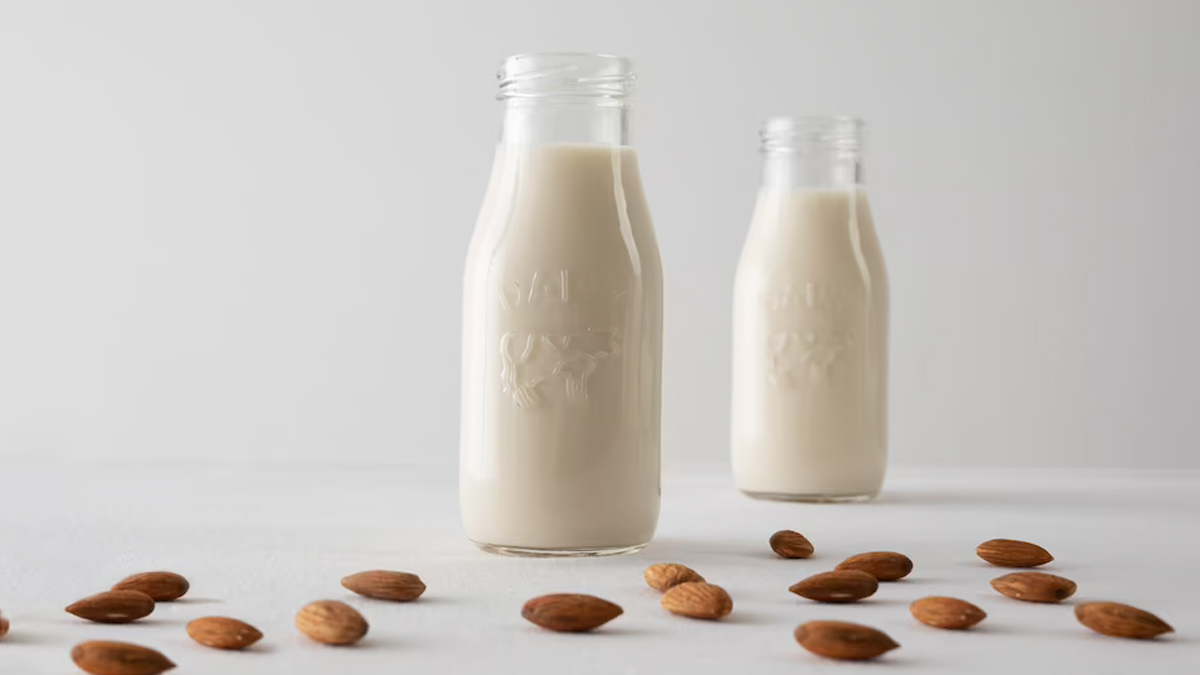
Plant-based milk alternatives have surged in popularity as more people turn to dairy-free options for health, ethical, and environmental reasons. Whether it's almond, soy, oat, coconut, or rice milk, these alternatives offer a variety of nutritional benefits. However, like any food product, plant-based milk may also have some side effects.
Table of Content:-
In an exclusive interaction with the editorial team of Onlymyhealth, Dr Shrey Srivastav, General Physician, Sharda Hospital - Noida, helped us explore the potential downsides of consuming these non-dairy options. Here is what he shared with us.
1. Nutrient Deficiency Concerns
Many plant-based milks do not naturally contain the same nutrients as cow's milk, particularly calcium, vitamin D, and protein. Although some brands fortify their products with these essential nutrients, others do not. Regularly consuming unfortified plant-based milk without incorporating other sources of these nutrients into your diet could lead to deficiencies.
2. Allergic Reactions
People with allergies need to be cautious when choosing plant-based milk. For instance:
Soy milk may cause allergic reactions in individuals with soy allergies, leading to symptoms such as hives, digestive distress, or even anaphylaxis.
Nut-based milk (like almonds and cashews) can trigger reactions in those with nut allergies.
Oat milk may cause issues for those with gluten sensitivity, especially if it is not certified gluten-free.

Also Read: Mounjaro Anti-Obesity Drug Launched By Eli Lilly In India, Check Benefits And Prices Here!
3. Digestive Issues
Certain plant-based milk contains additives and thickeners such as carrageenan and gums, which may cause digestive discomfort in some individuals. Additionally:
Oat milk and rice milk contain natural sugars, which can lead to bloating or upset stomachs for those with sensitive digestive systems.
Coconut milk is high in fat, which may not be suitable for people with conditions such as irritable bowel syndrome (IBS) or gallbladder issues.
4. Added Sugars and Preservatives
Flavored and sweetened versions of plant-based milk often contain added sugars, which can contribute to weight gain, inflammation, and an increased risk of diabetes. Reading nutrition labels carefully can help consumers avoid excessive sugar intake.
5. Impact on Hormones
Some plant-based milk, particularly soy milk, contains phytoestrogens, which mimic estrogen in the body. While moderate consumption is generally safe, excessive intake may affect hormone balance, especially in individuals with hormone-sensitive conditions.
Also Read: Mounjaro Anti-Obesity Drug Launched By Eli Lilly In India, Check Benefits And Prices Here!
6. Environmental and Ethical Considerations
While plant-based milks are often promoted as eco-friendly alternatives, some varieties have significant environmental impacts. Almond milk, for instance, requires a large amount of water for cultivation, while soy farming has been linked to deforestation in some regions. Being mindful of sourcing and sustainability practices can help consumers make more ethical choices.
Bottomline
Plant-based milk can be a great alternative to dairy, especially for those with lactose intolerance, ethical concerns, or dietary preferences. However, it is important to choose varieties that are fortified with essential nutrients, check labels for added sugars and allergens, and consume them in moderation. As with any dietary change, consulting a healthcare professional can help ensure that your nutritional needs are being met while avoiding any potential adverse effects.
Also watch this video
How we keep this article up to date:
We work with experts and keep a close eye on the latest in health and wellness. Whenever there is a new research or helpful information, we update our articles with accurate and useful advice.
Current Version